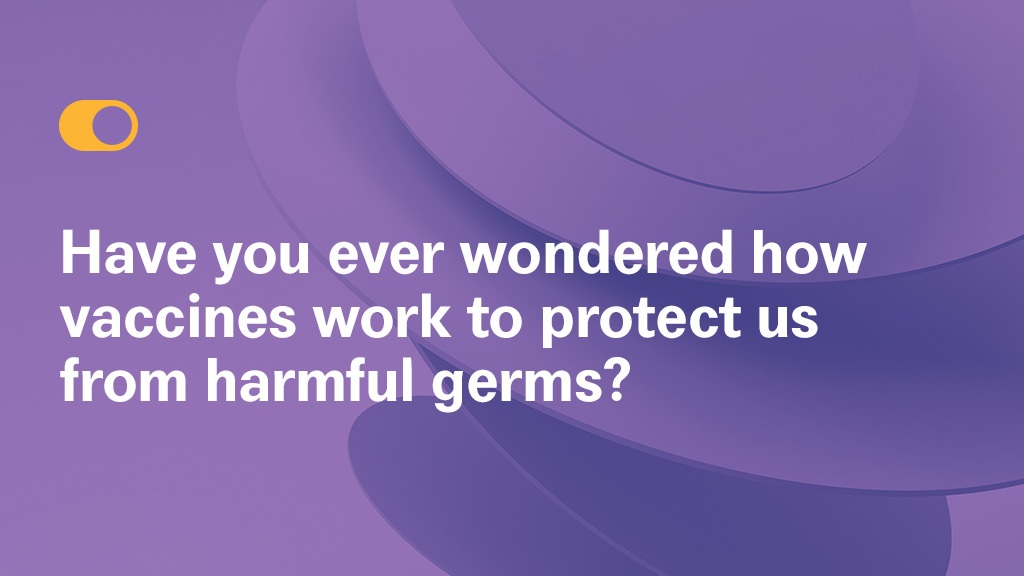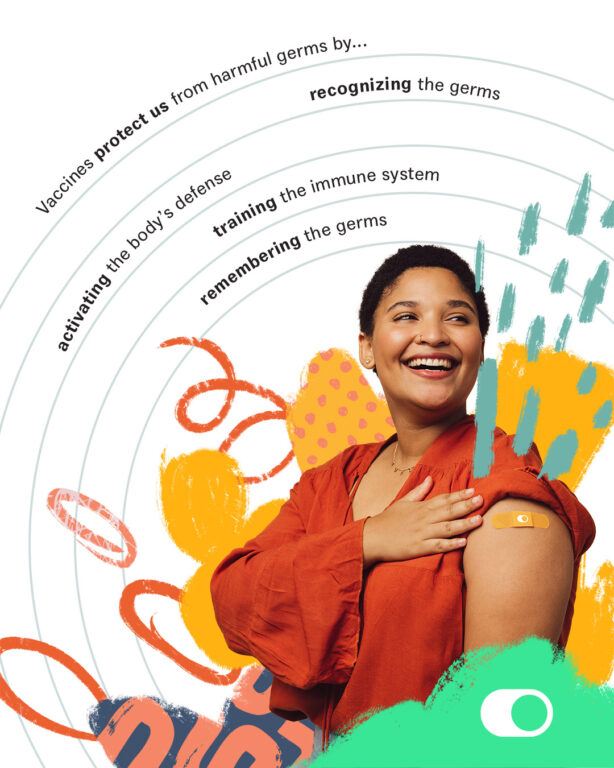
Blog
Have you ever wondered how vaccines work to protect us from harmful germs?
Vaccinations have been a cornerstone of preventative healthcare for decades, helping to prevent a wide range of infectious diseases. They work by activating our body’s natural defense mechanisms, teaching our immune system how to recognize and fight off harmful germs without actually getting sick. So, let’s dive in and discover the amazing world of vaccinations! Vaccinations work by helping our bodies fight off harmful germs that can make us sick.
 Here’s how they do it:
Here’s how they do it:
Recognizing the Germs
Vaccines contain tiny bits of the germs that cause diseases. These bits are weakened or made inactive, so they can’t make us sick. They are chosen carefully to train our immune system to recognize germs.
Activating the Body’s Defense
When we get a vaccine, our immune system gets activated. It’s like an army getting ready to fight. Our immune system starts making special proteins called antibodies that can find and destroy germs.
Training the Immune System
The vaccine helps our body learn how to fight germs without actually getting sick. It teaches our immune system how to make the right antibodies to attack germs and protect us.
Remembering the Germs
After we get a vaccine, our immune system creates a memory. It remembers how to fight specific germs. So, if we ever come across those germs again, our immune system can quickly recognize them and fight them off before they make us sick.
Staying Safe and Healthy
By getting vaccinated, we protect ourselves from getting sick or getting really sick if we do catch the germs. Vaccines also help protect others in our community, especially those who can’t get vaccinated, like babies or people with weak immune systems.
It’s Important to Note
Vaccines undergo rigorous testing and regulatory processes to ensure their safety and efficacy. They are continuously monitored for any potential side effects or adverse reactions. Vaccinations have been incredibly successful in preventing numerous diseases and have played a critical role in saving lives and reducing the burden of infectious illnesses worldwide.
Reach out to your Crossover provider to find out what vaccines you need and when to get them.
Vaccinations are a safe and effective way to protect yourself and those around you from harmful germs. Don’t wait until it’s too late, take action now to ensure your health and well-being. Contact your provider today to schedule a vaccination appointment.
Frequently Asked Questions
How do vaccines teach my immune system to fight germs?
Vaccines contain weakened or inactive pieces of germs that train your immune system to create antibodies. These antibodies can remember how to fight that germ in the future without you getting sick.
What’s inside vaccines?
Vaccines contain tiny harmless pieces of the germs that cause diseases, but these germs are altered so they cannot make you sick. Vaccines may also contain other ingredients like preservatives, adjuvants, or stabilizers to keep them safe and effective.
Do vaccines have side effects?
Vaccines may commonly cause mild side effects like fever, rash, or soreness at the injection site. More serious side effects are very rare. The benefits of getting vaccinated greatly outweigh any risks.
How are vaccines proven to be safe?
Before vaccines are approved for public use, they go through extensive clinical trials with thousands of participants to ensure safety and effectiveness. They are also closely monitored for any rare side effects after being introduced.
Why should I get vaccinated?
Getting vaccinated protects you and others around you by preventing the spread of infectious diseases. It boosts your immunity without you having to get sick first. Vaccines are safe, effective and save millions of lives each year.
When should I get catch-up vaccinations?
It’s never too late to get vaccinated. Speak with your healthcare provider about catch-up vaccination schedules for any vaccines you may have missed in childhood or adulthood. Staying up-to-date offers optimal protection.
